Hobbs Semester 1 Exam Review!!
1/102
Earn XP
Description and Tags
Name | Mastery | Learn | Test | Matching | Spaced | Call with Kai |
|---|
No study sessions yet.
103 Terms
Abraham
The father of Judaism, a henotheist that was one of god's greatest worshipers, his most remarkable son was isaac
Alexander the Great
Conquered the entire known world by the age of 31, he was the student of Aristotle and a wise leader, Macedonian King (356-323BC)
Aristotle
A master of those who know, The philosopher, The first scientist of; Poetry, Biology, Physics, Logic, and Politics, like in his books the politics
Charlemagne
Charles the Great, was one of the sons of Pepin the short, who went on to dominate most of Europe, first holy king of France.
Charles Martel
Father of Pepin the Short, was a military leader and statesman
Constantine
Roman emperor, lived from 305 A.D. to 337 A.D., created Constantinople as a holy city and the new center of the empire, also made the edict of Milan, first emperor to convert to Chrisitanity
Edward Gibbon
British historian lived from 1737 to 1794, wrote decline and fall of the roman empire, 6 vol. And complete the last 3 in Paris
Giotto
led the transition away from the Byzantine style and towards sorts of things that would be associated with Renaissance art
Hannibul
Carthage war leader in the second punic war, was extremely smart and figured out how to cross the Alps with elephants, beat tons of men in military combat using his brain and tactics
english political philosopher; wrote Two Treatises on Government (1689)
John Locke
life, liberty, and property
3 Natural Rights => John Locke
Machiavelli
"teacher of evil"
wrote the Prince and Discourses on Livy
niccolo machiavelii
Martin Luther
helped form the Protestant church
wrote the 95 theses which was about everything he believed to be wrong with the Catholic church
Martin luther
Muhammad
Founder of Islam, delivered the words of God to the people, the Koran was written based off of these words, had a journey named hijra. Goes to Mecca
Prussian polymath, wrote On the Revolutions of Celestial Spheres, & represents a turning away from the authority of tradition in favor of the authority of nature.
Nicolaus Copernicus
Plato
Student of Socrates, teacher of Aristotle, wrote 20+ dialogues,ex: The Republic(Justice) and Euthyphro(Piety)(428-348BC)
french mathematician & philosopher and wrote Meditations on First Philosophy
Rene Descartes
Saul (Paul)
Redeemed as the most important person in Chrisianity after Jesus and God, went of a mission to convert as many people as possible to Christianity
Simon (Peter)
went on a mission to convert people to Chrisianity, but was more strict in the practices and required circumcision
Sir Isaac Newton
english mathematician and physicist, wrote Philosophiae Naturalis Principia Mathematica, invents calculus, discovers the basic laws of motion and gravity, and confirms Copernicus with math.
Socrates
Philosopher, Never wrote anything but was used as a character in Platonic dialogue, teacher of Plato, was wise from/3 acknowledging his stupidity(469-399BC)
St. Benedict of Nursia
Created the Monte Cassino after the idea of loving thy neighbor, lived in a secluded area with his fellow worshipers, very important guy
St. Simeon Stylites
Took the whole being one with the earth to a whole nother level, he lived on top of a pillar for 36 years straight, to be with God.
Thucydides
Author of the Peloponnesian Wars (460-400BC)
english political philosopher, wrote the Leviathan, and said “Life in a State of Nature is Nasty, Brutish, & short… a War of Every Man against Every Man,”. He also said, “I was born with a twin whose name was Fear.” As well as, “We give away our natural rights in order to live by social contract, under the protection of the Leviathan.
Thomas Hobbes
State of Nature Rights
Right to self-preservation, and Right to determine the means of self-preservation
Who wrote the State of Nature Rights?
Thomas Hobbes
Aristotle's Regimes
Defined as good or bad, and by a scale of ruling by one, few, or many, and can end in a bad government everytime
Bourgeoisie
The middle class in europe in the time period of study, had merchants, shoe makers, hatters and traditional trade jobs
Battle of Cannae
The Romans become surrounded by the Carthaginian cavalry and have no choice but to surrender.
Battle of Tours
A battle won by Charles Martel as a fight against the Muslims and their attempt at taking over Spain and most likely the entire known world
Black Death
-also referred to as the Bubonic Plague and the Great Mortality
-disease that spread through fleas, and 30-60% of Europe’s population died because of it.
bubonic plague
Byzantine Style
-no backrounds
-people were painted from a side view
byzantine art
depicts 'holy' people
byzantine art
main focus is God
byzantine art
Carolingians
The French Dynasty named after Charlemagne
Concordat of Worms
A compromise between the king and the Pope that started that the church alone could grant a bishop his ring and staff (church power) but his power could be vetoed by the king
Geocentric
Representing the Earth as the center of the universe or solar system
Goths
A member of a Germanic people that invaded the Roman Empire from the east between the 3rd and 5th centuries
East-West Schism
The split between the Eastern and Western Churches in 1054
heresy
Belief in an unorthodox idea, normally against something like Christianity
humanism
a focus on human things
Hebrews
A member of an ancient people that lived in present day Israels and Palenstine, descended from jacob
Isrealites
A member of the ancient Hebrew nation, (12th to 6th century BC)
Jews
Came from the tribe of Judah, whose traditional religion is Judaism
Koran
The holy texts of Islam, brought by Gabriel and in order from longest book/chapter to shortest except for the first one
Lordship
one who owns the land and rents it out to peasants or is owner of serfs
Vassalage
Having and obligation to a lord or king
Medieval
Middle Ages
Memento Mori
means "Remember you must die"
Merovingians
First race of the Kings of France, before the Carolingians
Monotheism
The belief in one true god, could be any religion with one omnipotent god
Norman Conquest
11th-century invasion and occupation of England by an army made up of thousands of Normans, Bretons, Flemish, and men from other French provinces, all led by the Duke of Normandy, later styled William the Conqueror
Northern Renaissance
the movement in Art in Germany and Flanders that reflected greater religious tones; , Emphasized Critical Thinking, Developed Christian Humanism criticizing the church & society, Painting/ Woodcuts/Literature
Durer- Knight, Death and Devil
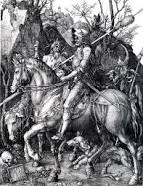
Breugal- Mad Meg
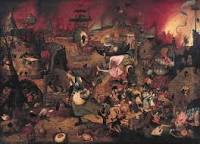
Bosch- Death and the Miser

Holbein- Ambassadors
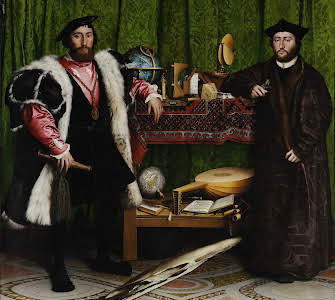
Orthodoxy
Being in the same ideas as everyone else
Ptolemaic Cosmology
The Egyptian way of seeing the universe
Rightly Guided Caliphs
The Sunni side of Muslims that were voted in instead of by heir
Salic Law
German law that crown must be passed through male relatives; used by France in 100 Years War to keep crown from Edward III
Shia
The side of the Twelvers, did not want anybody to join the religions, supposedly the 13th leader is still in hiding and will emerge when the time is right
Simony
Buying your way out of purgatory or at least less time, was abused
Southern Renaissance
Da Vinci- The Last Supper
Botticelli- Birth of Venus
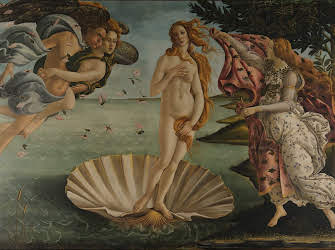
Titian- Rape of europa
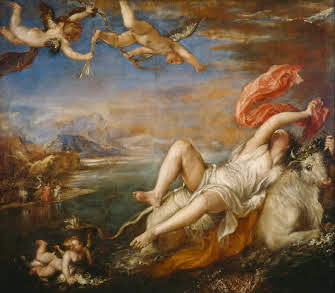
Sunni
The side of islam that had open arms, also has the 4 rightly guided caliphs and the Umayadd caliphate and others
Vandals
Around 410 AD after the Visigoths, the Vandals did the same. They were up top and took their people southwest then turned east to Carthage then took a administrative districts
Visigoths
in 378 AD they came in and after asking Romans to temporarily borrow territory, Rome said "no" so the Vandals came in anyways and expanded either way from south first then to west.
inventor of printing press
Johannes Gutenburg
publishes a bible, 1455
gutenburg
Christopher Columbus
publishes his journal, 1494
"discovered" America
christopher columbus
Dutch scholar and author
erasmus
1st best selling author
erasmus
correspondent of Martin Luther
erasmus
both were concerned with the church and saw need for reform
martin luther and erasmus
thought they should work for reform within the church
erasmus and martin luther
Martin Luther
1438~ 1546
95 theses
martin luther
Diet of Worms, 1521- excommunicated
martin luther
Founder of Lutherism
martin luther
Jean Calvin
1509~ 1604
correspondent of Martin Luther
erasmus
Swiss theologian
erasmus
T. U. L. I. P
basis of presbyterianism(calvinism)
founder of Calvinsim
jean calvin
Henry VIII
breaks with church, 1534
founder of Anglican Church ~~~ Episcopal
henry VIII
(Big Boy)
henry VIII
Industrial city
Milan
Where is Botticelli and Giotto from?
Florence
Venice
began to develop a trading empire in th Eastern Meditterranean in the 9th century
Paris
during the 900's this city became the Cappechian Capitol
located on the Seine river
paris